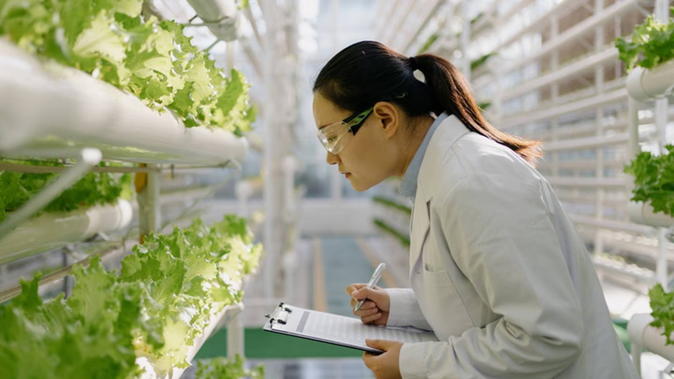
By Monique Steele of RNZ
The future of controversial gene technologies is expected to be top of agenda for the incoming National-led government.
Gene modification and editing technologies have sparked some uproar in recent years, with New Zealand fighting to hold its position as a producer of top-quality and naturally produced food and beverage.
Scientists at crown institute Plant and Food Research said while gene technologies could speed up the development of disease-resistant plants and cut pesticide use, they would need public support first.
The European Union has set targets to slash the use of chemical pesticides in half by 2030 - and New Zealand’s apple and pear industry wants to be totally spray-free by 2050.
But scientists face a long road ahead if they are to continue current traditional selection techniques to breed plants for disease resistance, as it can take years to achieve.
The National Party proposed a plan to “harness biotechnology” in June by ending the country’s effective ban on gene-editing and modification.
The party’s spokesperson for science, innovation and technology, Judith Collins, said it would end GE and GM bans, implement a dedicated biotechnology regulator and streamline approvals for trials and use of the technology.
/cloudfront-ap-southeast-2.images.arcpublishing.com/nzme/QXWOVFEGE5E4DAZA6EUC3MSDGQ.jpg)
National Spokesperson Research, Science, Innovation, Artificial Intelligence and Technology Judith Collins.
At present, scientists wanting to carry out gene-editing work face a number of lengthy regulatory barriers and approvals.
- National promises to end Genetic Engineering ban
- National's Judith Collins says current genetic modification ban puts NZ too far behind other nations
The general manager of new cultivar innovation at Plant and Food Research, Dr Zac Hanley, said the practices were being used in New Zealand laboratories - but in isolation from traditional plant breeding, which did take longer to produce results.
“We, for sure, have been exploring the technology in containment - in glass boxes that have got double-doors on them, and so on, to understand what it can do - but in the full knowledge that you can’t take it outside and make it part of the breeding programme - we have to keep them very separate,” Hanley said.
“It’s easy to show that it could make a significant difference in something like adapting to the future climate or dealing with future pests that are not here in New Zealand.”
He said it was “impossible” to accelerate the process of making more climate and disease-resistant plants - unless technologies like gene editing were used.
“But then, you bump into a different set of controversies, market acceptance and consumer expectations - you are trying to solve one problem but you may create another, in some peoples’ eyes.
/cloudfront-ap-southeast-2.images.arcpublishing.com/nzme/G22IPP52FVCQXNOLCLDRLNZB4A.png)
Plant and Food research innovation general manager Zac Hanley.
“It would be very interesting to be part of the discussion on how people wear these things off against each other, what gene editing or other technology means to them and how they’re prepared to accept that, or work with that and understand it.
“There’s a really important discussion to be had if people are wanting to make changes to the legislation.”
Marlborough’s Bragato Research Institute was allocated $18.7 million under the Ministry for Primary Industries’ Sustainable Food and Fibre Futures Fund in 2021 for a seven-year programme to develop new drought, frost and disease-resistant variants of New Zealand sauvignon blanc.
Principal scientist in grapevine improvement Darrell Lizamore said good progress was being made by using traditional plant breeding methods.
“There’s been a lot of gains through the uptake of genetic technologies - by that, I don’t mean GMOs, I mean the ability to understand DNA through sequencing, like we saw through the Covid pandemic the ability to identify the genetic differences between individuals and select for them based on that, and so that adds an incredible amount of efficiency on plant breeding that we can take advantage of.”
But he said it was a slow process - and continuing to import European varieties remained a viable option, as Europe was decades ahead in their work.
“But between the use of molecular techniques to improve selection rates, and also through import... I think we can make gains over 10 to 20 years that would otherwise take 40 to 60 if we were to be starting from scratch ourselves.”
Lizamore said more clarity around the future of gene technologies in New Zealand was needed, as the public would ultimately decide if they wanted to buy and drink gene-edited varieties of wine varieties under a new name.
- RNZ
Take your Radio, Podcasts and Music with you









